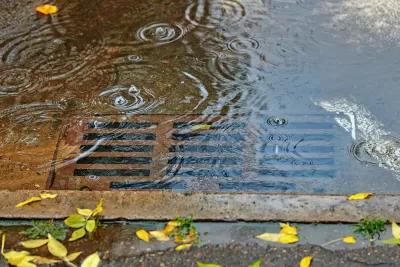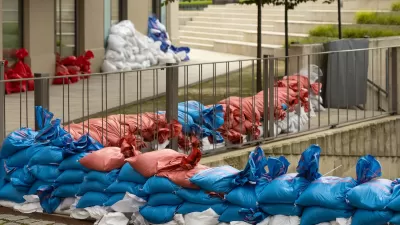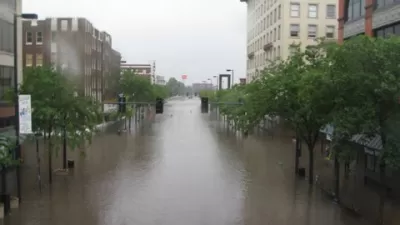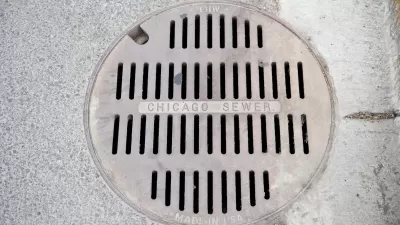Lack of gray and green infrastructure in the city’s densest communities, particularly in historically Black Southeast D.C., has led to higher amounts of flooding in those neighborhoods.

“A new University of Maryland study suggests that Washington, D.C.'s most socioeconomically vulnerable neighborhoods are less equipped to handle runoff from heavy rainfalls made more frequent by climate change,” according to a recent article by Maggie Haslam for Phys.org.
The study found that the city’s densest communities, particularly those in historically Black Southeast D.C., have fewer sewer pipes and lack green and gray infrastructure like permeable pavement, rain gardens, trees, and green roofs to adequately control and absorb the stormwater.
The higher prevalence of impervious surfaces in these neighborhoods creates excess runoff, which then overwhelms the outdated sewer structure, resulting in more frequent and severe flooding. Researchers attribute the disinvestment and infrastructure inequity to “racist planning practices dating to the 19th century that fueled inequitable infrastructure distribution and housing conditions across D.C.”
“The study … is one of the few to look at both above- and below-ground infrastructure through a socioeconomic lens, and the first to do so for the District of Columbia, with the aim of helping city planners funnel infrastructure dollars to neighborhoods most at risk,” Haslam reports.
FULL STORY: Stormwater hits D.C.'s poorest neighborhoods hardest, study finds

Study: Maui’s Plan to Convert Vacation Rentals to Long-Term Housing Could Cause Nearly $1 Billion Economic Loss
The plan would reduce visitor accommodation by 25,% resulting in 1,900 jobs lost.

North Texas Transit Leaders Tout Benefits of TOD for Growing Region
At a summit focused on transit-oriented development, policymakers discussed how North Texas’ expanded light rail system can serve as a tool for economic growth.

Using Old Oil and Gas Wells for Green Energy Storage
Penn State researchers have found that repurposing abandoned oil and gas wells for geothermal-assisted compressed-air energy storage can boost efficiency, reduce environmental risks, and support clean energy and job transitions.

Opinion: DC Encampment Sweeps Hide, but Don’t Solve, Homelessness
President Trump recently ordered the clearing of encampments built by unhoused people on federal land in Washington, D.C.

Santa Barbara Could Build Housing on County Land
County supervisors moved forward a proposal to build workforce housing on two county-owned parcels.

San Mateo Formally Opposes Freeway Project
The city council will send a letter to Caltrans urging the agency to reconsider a plan to expand the 101 through the city of San Mateo.
Urban Design for Planners 1: Software Tools
This six-course series explores essential urban design concepts using open source software and equips planners with the tools they need to participate fully in the urban design process.
Planning for Universal Design
Learn the tools for implementing Universal Design in planning regulations.
Ascent Environmental
Borough of Carlisle
Institute for Housing and Urban Development Studies (IHS)
City of Grandview
Harvard GSD Executive Education
Toledo-Lucas County Plan Commissions
Salt Lake City
NYU Wagner Graduate School of Public Service





























